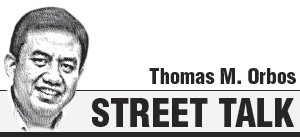
AS Metro Manila is set to enter the “new normal,” with hopes of being placed soon under a modified general community quarantine status, two significant news involving bus transportation came out last week. One was the resumption of provincial bus transport operations to and from Metro Manila. The second pertains to the implementation of automated fare collection system for the Edsa Bus carousel. These two events highlight the government’s efforts to operate under the new normal with emphasis on providing Covid-safe transport while recognizing the need for convenience of our commuters. There are, however, some concerns regarding their implementation. And they need to be noted and acted upon, even if such policies have already been implemented.
Allowing provincial buses to operate to and from Metro Manila is definitely a relief to the commuting public as well as to the bus operators and their personnel, especially after half a year of suspension of their operations. However, one thing left hanging was specifying the terminals that these buses would use. Bus operators would naturally opt for their present in-city terminals than using the integrated bus terminals located in the outskirts of the metropolis. They argue for commuter convenience, not to mention its cost-effectiveness, as there would be no need for additional trips. Besides, traffic levels in Metro Manila have supposedly gone down and banning provincial buses now should not be as relevant as before.
But one cannot take the pandemic lightly. Its highly infectious nature, not to mention the resulting deaths and illnesses, gives a deeper dimension to the importance of integrated terminals, insofar as Metro Manila is concerned. These integrated terminals act as souped-up triage that can better control the inflow and outflow of commuters on the outskirts of the metro, rather than having commuters crowd up in 60 or more independent terminals spread throughout the metropolis. Safety activities such as disinfection, temperature checks and even on-site testing can be done in a more efficient manner. Another compelling reason is, surprisingly, traffic. It is true that traffic has gone down by more than 50 percent since the lockdown, but the streets have become narrower for a variety of reasons. For one, the success story that is the Edsa Bus carousel has taken out one lane off Edsa. Bringing provincial buses either within the carousel lane or with the rest of the vehicles would negate the benefits of the scheme. Moreover, city roads have become more congested with the suspension of the number coding and truck ban schemes. Given these reasons, Metro Manila would be better off utilizing the central integrated terminals. Safety and convenience is then better achieved.
The other significant news item last week was the use of BEEP cards for the Edsa carousel commuters. The card is a product of AF Payments Inc., a private entity that currently has a contract with most of the rail lines in Metro Manila. Noble in its intention of having cashless transactions for convenience and safety reasons, its implementation on the EdsaCarousel created much controversy—and inconvenience after the proponents imposed a 60 percent increase in the cost of the cards. At this time when everyone is having difficulties, such a move is unconscionable. Which leads us to ask: What is the rationale for such an increase? What is their legal authority to do so? Were proper procedures followed? Shouldn’t such act that affects the public require public consultations? It’s good that the DOTr moved to immediately suspend its implementation to avoid adding a heavy load to our commuters.
There will always be road bumps to new policies that come out, especially in times of crisis such as this pandemic. These are just two examples. Adopted to provide safety and convenience to the riding public, the implementation might just run against its objectives if unchecked. Correcting them, even after they have been implemented, is the best way forward.
Thomas “Tim” Orbos was formerly with the DOTr and the MMDA. He has completed his graduate studies at the McCourt School of Public Policy of Georgetown University and is an alumnus of the MIT Sloan School of Management. He can be reached via e-mail at thomas_orbos@sloan.mit.edu



























